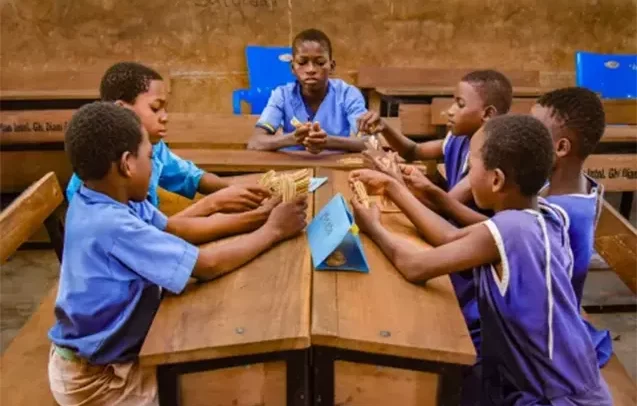Children learning with games
The Ministry of Education, in partnership with the United Nations Children’s Fund (UNICEF) and the Hempel Foundation, has launched the 2025 Foundational Learning Action Tracker (FLAT) in Accra.
In a joint press release, the partners explained that FLAT is a digital monitoring tool designed to accelerate progress in literacy, numeracy, and socio-emotional learning among children nationwide, and is a step in Ghana’s commitment to improving educational quality and achieving both national education goals and the Sustainable Development Goals (SDGs).
The FLAT monitors national progress through the RAPID Framework, which focuses on reaching every child and keeping them in school, assessing learning levels, prioritising the teaching of fundamentals, increasing instructional efficiency, and developing psychosocial health and well-being.
According to the Ministry of Education, the 2025 FLAT will serve as a vital evidence-based tool to track progress, identify gaps, and refine education policies. It will also guide equitable resource allocation and ensure that every child in Ghana acquires the essential foundational skills needed to succeed in school and in life, the release explained.
UNICEF, in the release, stressed the urgent need for greater investment and accelerated action to strengthen foundational learning globally.
They noted that while most countries have maintained progress since the first launch of the tracker in 2023, the pace of improvement remains too slow to meet global education goals.
UNICEF emphasised that ensuring every child not only goes to school but also learns requires sustained support for teachers, classrooms, and education systems. Strong policies, they added, must be matched with substantial investments that translate national commitments into real learning gains in classrooms.
FLAT, which draws on data from 124 low- and middle-income countries, promotes global accountability for education commitments.
Its findings provide valuable insights into where progress is being made and where countries need to act faster to close learning gaps.
The data is derived from annual global RAPID surveys, offering governments, educators, and policymakers the information needed to prioritise interventions and make evidence-driven decisions.
It was noted in the release that strengthening teacher capacity, increasing classroom resources, and improving the use of learning data are critical steps toward lasting improvements in foundational learning outcomes. The introduction of the 2025 Foundational Learning Action Tracker reaffirms the country’s commitment to ensuring that every child not only attends school but also learns, grows, and thrives in an equitable and effective education system.
By Vera Owusu Sarpong


